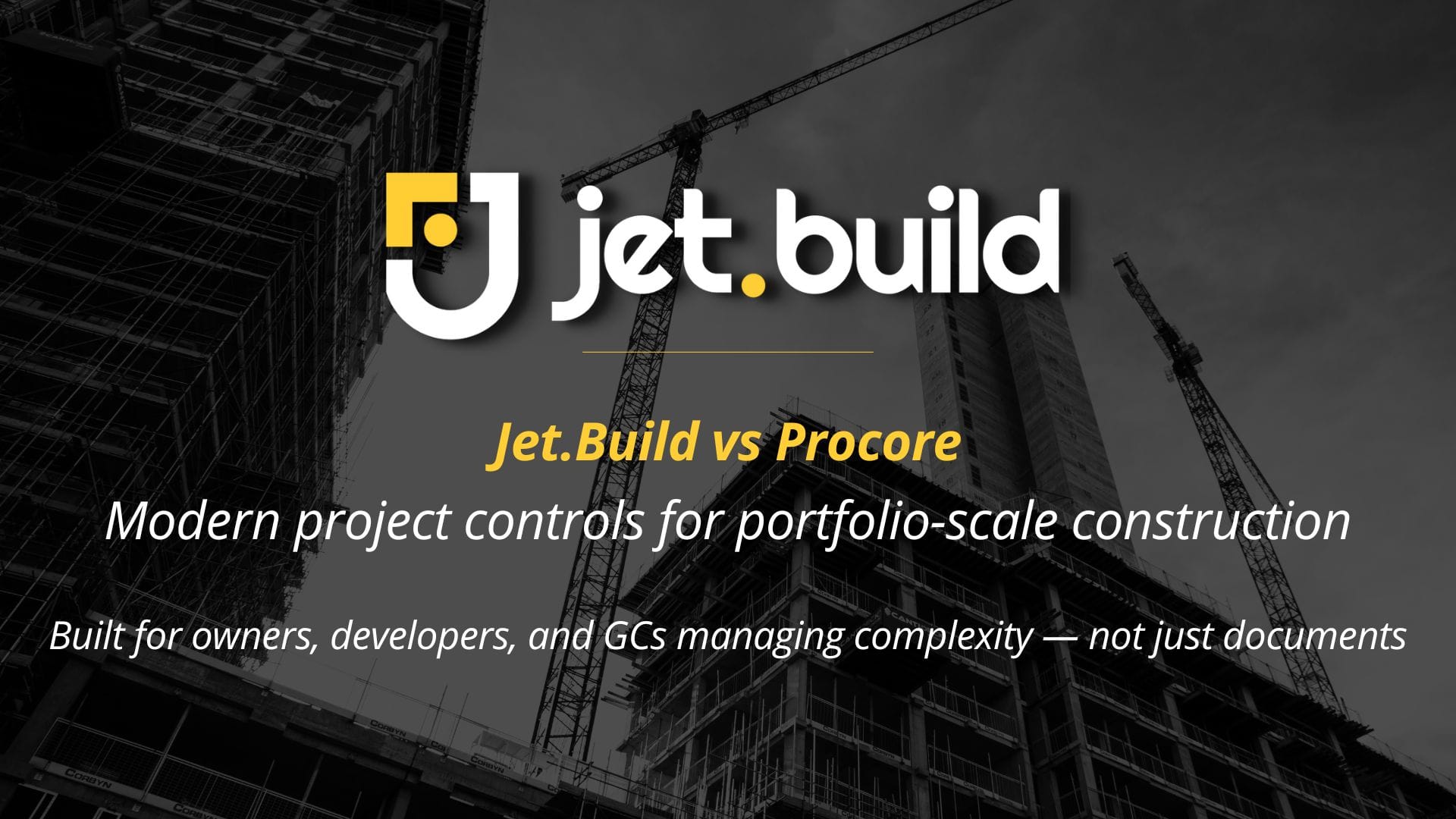Introduction
Often perceived as impervious to technological change, the real estate development and construction industries are experiencing a profound transformation fueled by new technologies and artificial intelligence (AI). This integration of technologies is not merely a surface-level adjustment but a fundamental reimagining of traditional processes, decision-making paradigms, and operational efficiencies. In this comprehensive article, we deeply dive into the myriad ways technology and AI reshape the foundations of real estate development, construction, and property management.
A fundamental shift in processes can only happen after overcoming several challenges.
Integrating technology, including artificial intelligence (AI), into the real estate development and construction industries has undoubtedly brought transformative benefits. However, it's essential to recognize that this adoption has challenges and limitations. Let's delve into some of the critical issues that technology faces in these sectors:
1. Complexity and Fragmentation: The real estate development and construction industries are notoriously complex and fragmented, with numerous stakeholders, processes, and regulations involved in every project. Introducing technology into this intricate ecosystem requires interoperability among disparate systems, data standards, and industry protocols. Achieving seamless integration and data exchange between various software platforms, hardware devices, and stakeholders remains a significant hurdle in realizing the full potential of technology in these industries.
2. Resistance to Change: Despite the promise of technological advancements, the real estate development and construction sectors have traditionally needed to be faster to embrace change and innovation. Legacy mindsets, entrenched workflows, and risk-averse cultures often hinder the adoption of new technologies. Moreover, stakeholders may be reluctant to invest in unfamiliar technologies due to concerns about disruption, implementation challenges, and return on investment (ROI). Overcoming resistance to change and fostering a culture of innovation is essential to driving the widespread adoption of technology in these industries.
3. Data Silos and Fragmentation: Data silos and fragmentation pose significant obstacles to effective data management and utilization in real estate development and construction. Project data is often dispersed across multiple systems, departments, and stakeholders, making it challenging to aggregate, analyze, and leverage insights effectively. Furthermore, interoperability issues between software platforms and data formats exacerbate data fragmentation, hindering collaboration, decision-making, and innovation. Addressing data silos requires implementing robust data governance frameworks, standardized protocols, and interoperable platforms to facilitate seamless data exchange and integration across the project lifecycle.
4. Cost and ROI Concerns: While technology promises efficiency gains, cost savings, and competitive advantages, the upfront investment required for implementation and deployment can be substantial. Real estate developers and construction firms may hesitate to adopt new technologies due to concerns about the initial capital outlay, ongoing maintenance costs, and uncertainty surrounding ROI. Moreover, the long-term benefits of technology adoption, such as improved productivity, reduced rework, and enhanced project outcomes, may only sometimes be immediately apparent or quantifiable, further complicating investment decisions.
5. Skills Gap and Talent Shortage: The rapid pace of technological innovation in the real estate development and construction industries has created a growing gap between the skills required and the talent available. Many professionals need more technical expertise, digital literacy, and familiarity with emerging technologies to harness the full potential of AI, machine learning, robotics, and other advanced tools. Bridging the skills gap and investing in workforce development initiatives are critical to empowering employees to leverage technology effectively and drive digital transformation across the industry.
6. Regulatory and Compliance Challenges: Real estate development and construction are subject to many regulatory requirements, building codes, zoning regulations, and safety standards, which vary by jurisdiction and project type. Incorporating technology into these highly regulated environments requires careful consideration of compliance issues, data privacy regulations, and legal liabilities. Moreover, ensuring that technology solutions adhere to industry standards, best practices, and ethical guidelines is essential to mitigating risks and maintaining stakeholder trust.
Addressing these challenges requires a concerted effort from industry stakeholders, including real estate developers, construction firms, technology providers, policymakers, and educational institutions. Collaboration, innovation, and a commitment to overcoming barriers to technology adoption are essential to unlocking technology's full potential in revolutionizing the real estate development and construction industries.
Understanding Technology and AI in Real Estate Development and Construction
At its essence, AI represents the culmination of human ingenuity in creating machines capable of replicating and augmenting cognitive functions. Machine learning, a subset of AI, empowers systems to analyze vast datasets, discern patterns, and make predictions or decisions autonomously. Natural language processing (NLP) and computer vision extend the AI toolkit, enabling systems to comprehend and interpret unstructured data—such as textual documents or visual imagery—with human-like accuracy and fluency.
Artificial intelligence (AI) offers many applications that can revolutionize real estate development for property owners. These applications leverage data analytics, automation, and predictive modeling to enhance decision-making, streamline processes, and optimize asset performance. Here are several critical applications of AI in real estate development for owners:
1. Market Analysis and Site Selection: AI-powered algorithms can analyze vast amounts of data, including demographic trends, economic indicators, and local market conditions, to identify optimal locations for real estate development projects. By leveraging predictive analytics, property owners can make informed decisions about site selection, assessing factors such as demand potential, competitive landscape, and growth projections to maximize the return on investment.
2. Financial Modeling and Risk Assessment: AI algorithms can perform complex financial modeling and risk analysis to evaluate the feasibility of real estate development projects. By incorporating factors such as construction costs, financing options, market dynamics, and regulatory constraints, AI-driven models provide accurate projections of project profitability and assess potential risks and uncertainties. Property owners can use these insights to optimize project financing, mitigate risks, and ensure the financial viability of their developments.
3. Design Optimization and Space Planning: AI-driven design optimization tools can assist property owners in optimizing building designs and space utilization for maximum efficiency and functionality. By analyzing parameters such as floor plans, building codes, occupancy patterns, and user preferences, AI algorithms can generate optimized layouts and configurations that maximize usable space, enhance tenant satisfaction, and optimize overall building performance.
4. Construction Management and Project Monitoring: AI technologies can streamline construction management processes and improve project monitoring for real estate development projects. AI-powered project management platforms can automate scheduling, resource allocation, and workflow optimization, reducing delays, minimizing cost overruns, and improving overall project efficiency. Other solutions include Submittal and RFI management, Work Breakdown structure, bid and contract management, punch lists, and drawing management. Additionally, AI-driven monitoring systems can provide real-time insights into construction progress, quality control, and safety compliance, enabling property owners to address issues and ensure project success proactively.
5. Predictive Maintenance and Asset Management: AI-enabled predictive maintenance systems can optimize asset performance and reduce operational costs for real estate owners. By analyzing sensor data, equipment health metrics, and historical maintenance records, AI algorithms can predict potential equipment failures, prioritize maintenance activities, and optimize asset lifecycle management strategies. Property owners can leverage these insights to minimize downtime, extend asset lifespan, and maximize the return on investment in building systems and infrastructure.
6. Tenant Acquisition and Retention: AI-powered analytics can enhance tenant acquisition and retention strategies for real estate owners. By analyzing tenant preferences, market trends, and competitor offerings, AI algorithms can identify potential tenants, personalize marketing messages, and optimize leasing strategies to attract and retain high-quality tenants. Additionally, AI-driven tenant engagement platforms can enhance communication, streamline leasing processes, and improve overall tenant satisfaction, leading to higher occupancy rates and increased property value.
7. Energy Efficiency and Sustainability: AI technologies can optimize energy usage and promote sustainability in real estate developments. AI-powered energy management systems can analyze building performance data, weather patterns, and occupancy patterns to identify opportunities for energy savings, optimize HVAC systems, and reduce utility costs. Additionally, AI-driven sustainability assessments can evaluate environmental impact, identify areas for improvement, and guide decision-making to ensure that real estate developments meet or exceed green building standards and regulatory requirements.
By leveraging these AI applications, property owners can gain valuable insights, optimize decision-making processes, and maximize the value of their real estate development projects. Whether optimizing site selection, streamlining construction management, or enhancing tenant satisfaction, AI can transform every aspect of real estate development for property owners, driving greater efficiency, sustainability, and profitability.
Applications of AI in Construction
1. Predictive Maintenance: AI-enabled predictive maintenance systems harness sensor data, IoT connectivity, and machine learning algorithms to monitor the health and performance of critical equipment and infrastructure assets in real time. By analyzing historical performance data, identifying patterns, and predicting potential failure modes, these systems empower construction firms to proactively schedule maintenance activities, prevent costly downtime, and optimize asset lifecycle management strategies.
2. Construction Site Safety: AI technologies such as computer vision, LiDAR scanning, and IoT sensors revolutionize construction site safety by enabling real-time hazard detection, risk assessment, and safety compliance monitoring. Construction companies can use AI-powered video analytics, drones, and wearable devices to identify potential safety violations, mitigate operational risks, and ensure regulatory compliance across diverse project environments and work zones.
3. Autonomous Construction Equipment: Integrating AI into construction machinery and equipment is paving the way for autonomous operation, robotic automation, and uncrewed aerial vehicle (UAV) deployment across various construction activities and job site operations. AI-driven technologies enhance productivity, efficiency, and safety across the construction industry value chain, from autonomous earthmoving vehicles and robotic bricklaying systems to aerial drones and uncrewed aerial vehicles (UAVs) for site inspection and surveying.
4. Design Optimization and Prefabrication: AI algorithms and generative design tools are revolutionizing the architectural design process by enabling architects, engineers, and designers to explore complex design alternatives, optimize structural configurations, and achieve performance-driven design objectives with unprecedented speed and precision. Moreover, AI-powered prefabrication technologies and robotic assembly lines are revolutionizing off-site construction methodologies, modular construction techniques, and industrialized building systems (IBS), enabling construction firms to accelerate project delivery, reduce material waste, and enhance construction quality and consistency.
Applications of AI in Real Estate for Owners
1. Predictive Analytics for Property Valuation: AI-driven predictive analytics has revolutionized property valuation by synthesizing data points—from historical sales data and market trends to demographic shifts and economic indicators—into precise and actionable insights. By leveraging machine learning algorithms, real estate professionals can make data-driven decisions regarding property acquisition, disposition, and investment strategies with unprecedented accuracy and confidence.
2. Personalized Property Recommendations: AI-powered recommendation systems leverage sophisticated algorithms to analyze user preferences, historical behavior, and contextual data, delivering personalized property recommendations tailored to individual needs and preferences. By harnessing the power of AI, real estate platforms can enhance user engagement, drive conversions, and foster long-term customer loyalty through hyper-targeted marketing campaigns and curated property listings.
3. Virtual Property Tours and Staging: Virtual reality (VR) and augmented reality (AR) technologies are revolutionizing how Ownership teams can showcase assets to prospective buyers and tenants. Through immersive VR experiences and interactive AR applications, individuals can explore properties remotely, virtually walk through rooms, and visualize potential renovations or interior design schemes in real time. Technology enhances the efficiency of the property viewing process, facilitates informed decision-making, and mitigates the logistical challenges associated with physical property tours.
4. Automated Property Management: AI-driven property management platforms streamline administrative tasks, optimize operational workflows, and enhance tenant experiences through automation and predictive analytics. From rent collection and lease management to maintenance scheduling and tenant communication, AI-powered systems can significantly reduce manual overhead, minimize operational inefficiencies, and improve overall service quality and responsiveness.
How AI Supports Developers and Owners
AI technologies offer invaluable support to real estate developers and property owners at every stage of the property lifecycle, from conceptualization to asset management.
1. Market Analysis and Site Selection: Developers rely on AI-driven predictive analytics to assess market trends, demographic shifts, and economic indicators, enabling informed decisions regarding site selection and investment opportunities. By analyzing vast datasets, AI algorithms can identify emerging market trends, forecast demand patterns, and pinpoint strategic locations for development projects.
2. Design Optimization and Cost Estimation: AI-powered design optimization tools assist developers in creating cost-effective and efficient building designs. Generative design algorithms explore countless design permutations, optimizing layouts for factors such as energy efficiency, construction costs, and spatial functionality. Additionally, AI algorithms analyze historical project data to provide accurate cost estimates, enabling developers to budget effectively and minimize cost overruns.
3. Risk Mitigation and Decision Support: AI offers sophisticated risk assessment and decision support capabilities, helping developers navigate complex regulatory requirements, zoning restrictions, and environmental considerations. Machine learning algorithms analyze regulatory data, identify potential compliance issues, and recommend mitigation strategies, reducing project delays and legal risks. Moreover, AI-driven predictive models assess project viability and financial performance, empowering developers to make data-driven investment decisions and mitigate financial risks.
4. Asset Management and Portfolio Optimization: Property owners leverage AI-powered asset management platforms to optimize portfolio performance, maximize asset value, and enhance operational efficiency. These platforms aggregate and analyze property data, monitor key performance indicators, and generate actionable insights to inform strategic decision-making. AI algorithms predict maintenance needs, optimize leasing strategies, and identify opportunities for portfolio diversification, enabling owners to achieve optimal returns on their investments.
How AI Supports Contractors
AI technologies offer transformative benefits to contractors across various aspects of construction project management, execution, and delivery.
1. Project Planning and Scheduling: Contractors utilize AI-driven project planning and scheduling tools to optimize project timelines, allocate resources efficiently, and mitigate schedule delays. Machine learning algorithms analyze historical project data, identify critical path activities, and generate optimized construction schedules tailored to project requirements. By accurately forecasting project timelines and resource demands, AI enables contractors to enhance productivity, minimize downtime, and deliver projects on time and within budget.
2. Supply Chain Management and Procurement: AI-powered supply chain management solutions optimize procurement processes, streamline supplier selection, and mitigate supply chain risks. Predictive analytics algorithms forecast material demand, monitor market fluctuations, and identify cost-saving opportunities, enabling contractors to optimize inventory levels and negotiate favorable procurement contracts. Additionally, AI algorithms analyze supplier performance data, assess vendor reliability, and identify potential bottlenecks in the supply chain, ensuring timely delivery of materials and equipment to the construction site.
3. Quality Control and Safety Compliance: Contractors leverage AI technologies to enhance quality control measures and ensure compliance with safety regulations on construction sites. Computer vision systems analyze visual data from on-site cameras and drones, detecting defects, identifying safety hazards, and monitoring real-time adherence to safety protocols. By automating quality inspections and safety compliance monitoring, AI reduces the risk of rework, enhances construction quality, and improves worker safety on the job site.
4. Labor Productivity and Performance Optimization: AI-powered workforce management solutions optimize labor productivity, enhance workforce efficiency, and improve project performance. Machine learning algorithms analyze labor productivity data, identify performance trends, and recommend optimization strategies to maximize worker productivity and minimize idle time. Additionally, AI-driven predictive models assess labor availability, skill requirements, and resource allocation needs, enabling contractors to optimize staffing levels and allocate resources effectively across multiple projects.
By leveraging AI technologies, contractors can streamline project management processes, enhance operational efficiency, and deliver high-quality construction projects that meet client expectations and industry standards.
Challenges and Considerations
Despite the transformative potential of AI in real estate development and construction, both site and technology teams have several challenges and considerations to address to maximize its impact and ensure successful deployment:
1. Data Privacy and Security: The proliferation of AI-driven technologies and data-driven decision-making processes raises critical concerns regarding data privacy, security, and regulatory compliance. Real estate development and construction companies must implement robust data governance frameworks, encryption protocols, and access controls to safeguard sensitive information, mitigate cyber threats, and protect stakeholders' privacy rights.
2. Skills Gap and Workforce Development: The adoption and integration of AI technologies necessitate a paradigm shift in workforce skills, competencies, and organizational capabilities. Real estate development and construction companies must invest in talent development, employee training programs, and cross-functional collaboration initiatives to equip their workforce with the technical skills, domain expertise, and digital literacy needed to navigate the evolving technological landscape and drive innovation at scale.
3. Algorithmic Bias: AI algorithms and machine learning models are inherently susceptible to biases, errors, and unintended consequences from biased training data, flawed assumptions, and algorithmic decision-making processes. Real estate development and construction companies must recognize and enact on the shortfalls and mitigate decisions accordingly.
Conclusion
In conclusion, integrating technology and AI into real estate development and construction is revolutionizing the industries, unlocking new opportunities for innovation, efficiency, and sustainability. From predictive analytics and personalized recommendations to data supported real estate development and construction management, autonomous construction equipment, and AI-powered solutions that are reshaping every facet of these sectors—from property valuation and marketing to construction project management and asset lifecycle optimization. However, realizing the full potential of AI requires real estate development and construction companies to address critical challenges, such as skills development and the collective willingness to embrace AI technologies responsibly and proactively. By fostering a culture of innovation, collaboration, and continuous learning, real estate development, and construction firms can harness the transformative power of AI to drive long-term business growth, enhance customer experiences, and create value for stakeholders in an increasingly digital and interconnected world.
Check out The Veterans Who Build Show, sponsored by Jet.Build!









